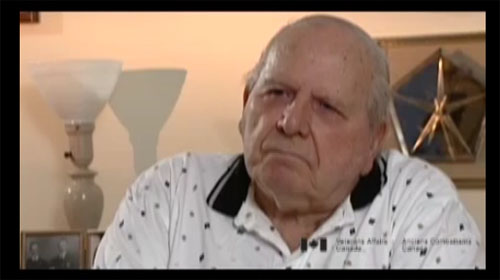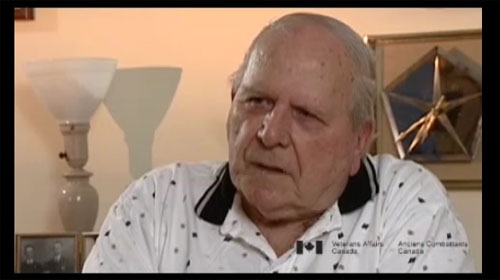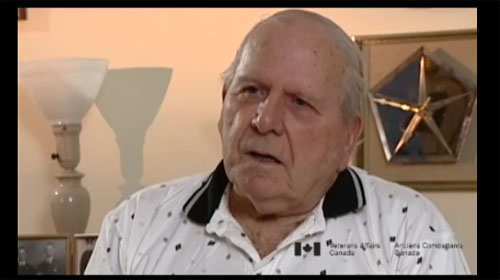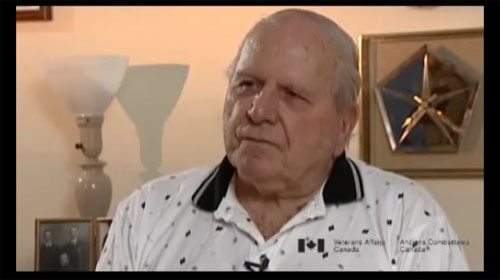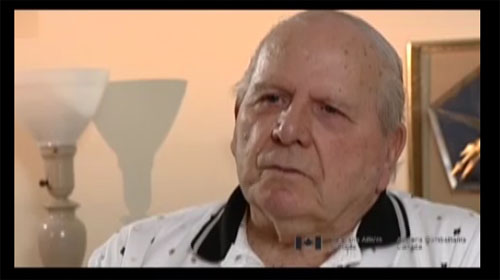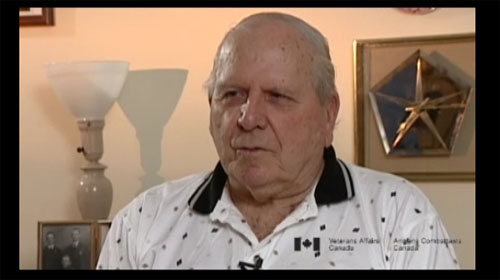Learning to Protect Yourself
Heroes Remember
Learning to Protect Yourself
Transcript
Description
Mr. Quick talks about joining the Film and Photo Unit and some of the training he got from the British Army Film and Photo Unit.
Norman Quick
Mr. Quick was born in Toronto, Ontario on April 22, 1921. His father, a cinematographer, moved the family to Ottawa when he was very young and he remembers in particular, playing a lot of hockey wearing homemade equipment. Mr. Quick enlisted in the Medical Corps, but quickly transferred to the Film and Photo Corps once it was formed in England. His active service took him to Italy, where he filmed such notable actions as Ortona and Monte Cassino. Interestingly, he and his crew adopted a teenage boy named Ilio, who accompanied the Canadian film crew until its tour in Italy ended. Mr. Quick was then deployed to NW Europe, where he served in France, Belgium, Holland and Germany. He remained in the Canadian Army as a cinematographer, but left after Paul Hellyer amalgamated Canada’s Armed Forces. Mr. Quick currently resides in Ottawa, Ontario.
Meta Data
- Medium:
- Video
- Owner:
- Veterans Affairs Canada
- Duration:
- 2:26
- Person Interviewed:
- Norman Quick
- War, Conflict or Mission:
- Second World War
- Branch:
- Army
- Units/Ship:
- Film and Photo Unit
- Rank:
- Staff Sergeant
- Occupation:
- Film Camera Operator
Related Videos
- Date modified:



